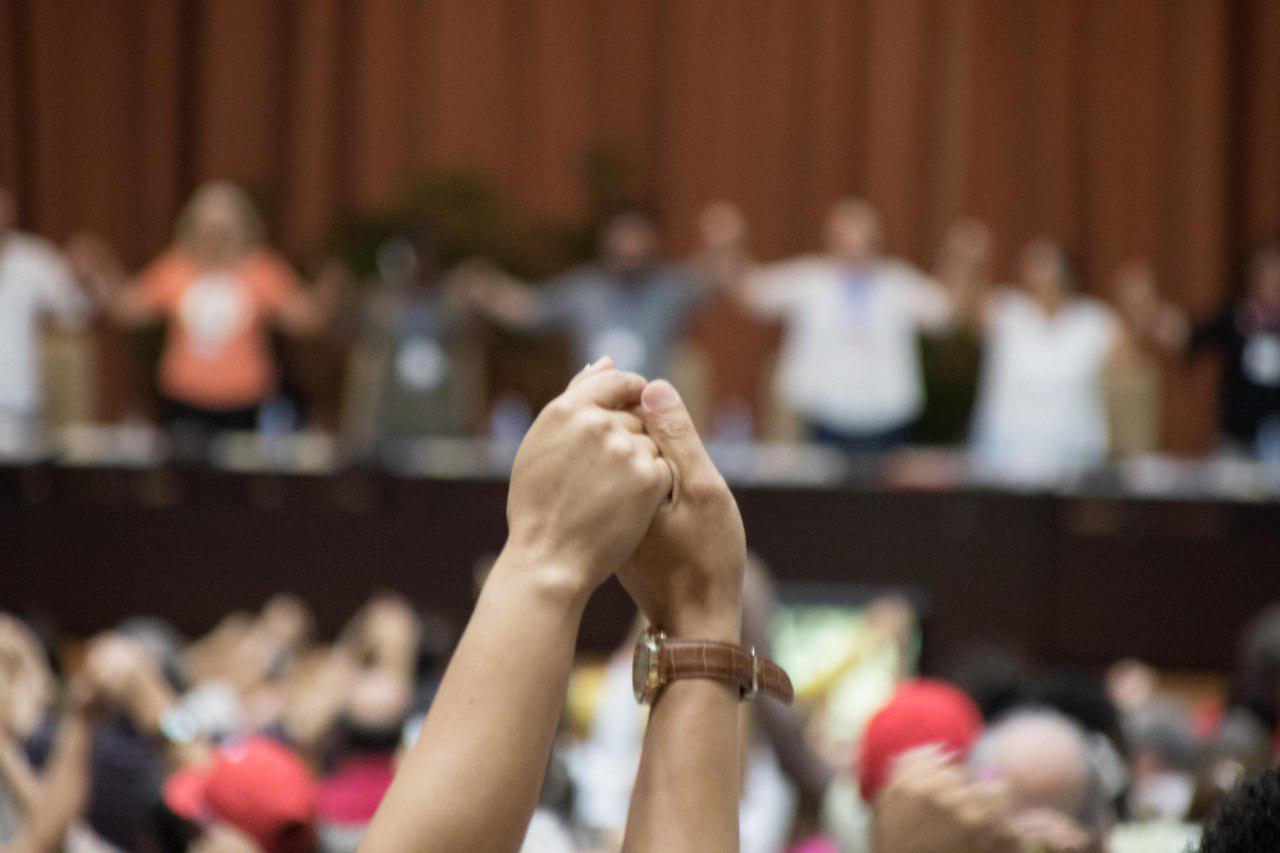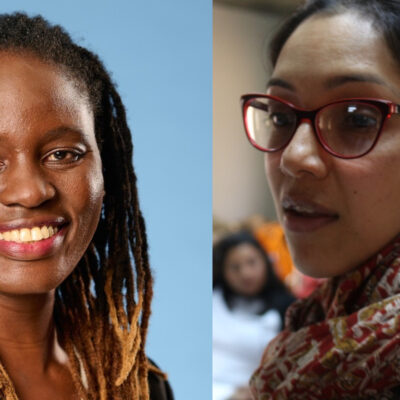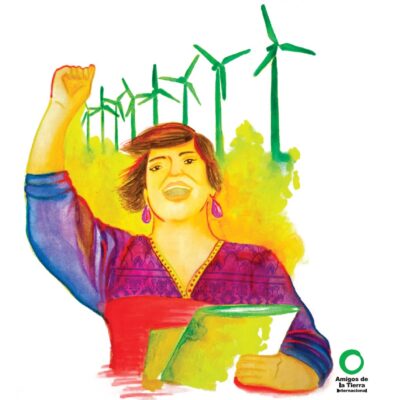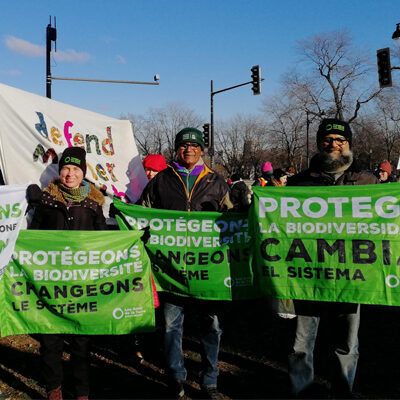The main challenge is unity: Anti-Imperialist Meeting held in Cuba draws to a close
Voices from grassroots movements and peoples' organizations as activities finish

The Anti-Imperialist Meeting of Solidarity for Democracy and Against Neoliberalism closed on Sunday afternoon, with a ceremony at Palacio de Convenciones in Havana, Cuba. The political and symbolic value of this three-day meeting is reflected in the final numbers: 1300 participants from 789 social organizations coming from 86 countries.
On Sunday morning, the different social movements and organizations, left-wing political parties and groups from the international movement in solidarity with Cuba agreed an Action Plan, which was discussed the previous day in several Comissions. Venezuelan President Nicolás Maduro and Cuban President Miguel Díaz-Canel, as well as former Cuban President Raúl Castro, were present at the afternoon closing ceremony, where the Plan was read out.
As the meeting drew to a close, Real World Radio spoke to several participants. Here they share, in their own words, what they found most enriching about the meeting, as well as the key analyses, challenges and possible next steps.
Joel Suárez, Martin Luther King Jr. Memorial Center of Cuba
“We now have to work on refining the broad Action Plan, establish an order of strategic priorities, start more coordination between networks and regional platforms, and above all try to see how we can reach the over 780 organizations that came to Cuba, in order to revitalize the anti-neoliberal struggle.”
“We are hopeful, there are many possibilities ahead, but we have much work to do. A key challenge is unity. I think that the other main challenge for the analogue left wing is understanding the debate around cultural hegemony through social media. If we don’t present an efficient and effective battle front there, we will be doomed.”
Soniamara Maranho, Brazilian Movement of People Affected by Dams (MAB)
“Cuba and Venezuela, among other countries that managed to start a process to change the roots of the system, are a model for us and the whole world, showing how it is possible to divide and control wealth and have sovereignty.”
Soniamara made reference to the high number of unmonitored dams in Brazil, including several that face imminent risk of collapse: “These are the contradictions of the capitalist system; our job is to organize the people so that they know that the development and energy model that exists today in Brazil does not benefit our society.”
Marília Gonçalves, from Friends of the Earth Brazil and a settler of the Landless Rural Workers Movement (MST):
“The most important thing is to realize that imperialism acts in the same way all over the world. This gives us strength to find solutions as a collective. We can start thinking specifically about a real, organized left-wing front in Latin America and the Caribbean.”
“We feel safer at the grassroots knowing that we are not alone. It gives us strength to know that throughout Latin America and the Caribbean, throughout the Global South, all of the peoples are organized, fighting the same fight as us. This is how we become stronger and achieve left-wing unity, which is what we need.”
“If you don’t make a difference at the grassroots level, it is useless. We need grassroots voices to share their realities and experiences, then use these as the point of departure for upscaling strategies.”
Camilo Bermúdez, Civic Council of Popular and Indigenous Organizations of Honduras (COPINH):
“We must find unity with other organizations, because if we limit ourselves to our own challenges we may drown.”
“One of the many things COPINH takes from the work and legacy of Berta Cáceres is the solidarity with all movements, taking care of our comrades, and seeing how we can help, articulate, and do something for others. Because in the future this will become solidarity work for us.”
Juan Pablo Soler, Ríos Vivos (Living Rivers) Movement, Colombia:
“We must move forward more quickly in strengthening local processes, and generating alternatives, autonomy, food sovereignty, energy sovereignty and real processes of unity.”
“The Ríos Vivos Movement must work at local level to build and advance the proposal for a just energy transition, by the people and for the people, based on energy sovereignty. Today we see this as the creation of a peoples’ energy project.”
Natalia Salvático, Friends of the Earth Argentina:
“I sense a feeling of sisterhood and brotherhood. This meeting fills us with hope and energy to continue fighting. But it also makes us realize the deep injustices that exist on our continent, and how people are defying this (through massive mobilizations in several countries). We never stop trying to overcome attempts at domination.”
“I was also extremely glad to see the presence of women and the feminist movement at the meeting, since this is an important moment for feminism in the region, which will only continue getting stronger. We are happy as we believe that the Legal, Safe and Free Abortion Act will be passed in Argentina next year.”
Edgardo García, Latin American Coordination of Rural Organizations (CLOC-Vía Campesina)
“Whenever people start fighting in defense of their rights, the transnational corporations, the global banking system, financiers, thieves and looters of countries, all try to starve them. The role of peasants is to support the peoples in their struggles. We need to understand that we are at war and that a hungry troop is a weak troop. Peasants are reclaiming their role, and they are doing so through agroecology, by reviving techniques and through exchanges between countryside and city. This is our battle: national sovereignty with food sovereignty.”
Social Movements Communications Convergence






